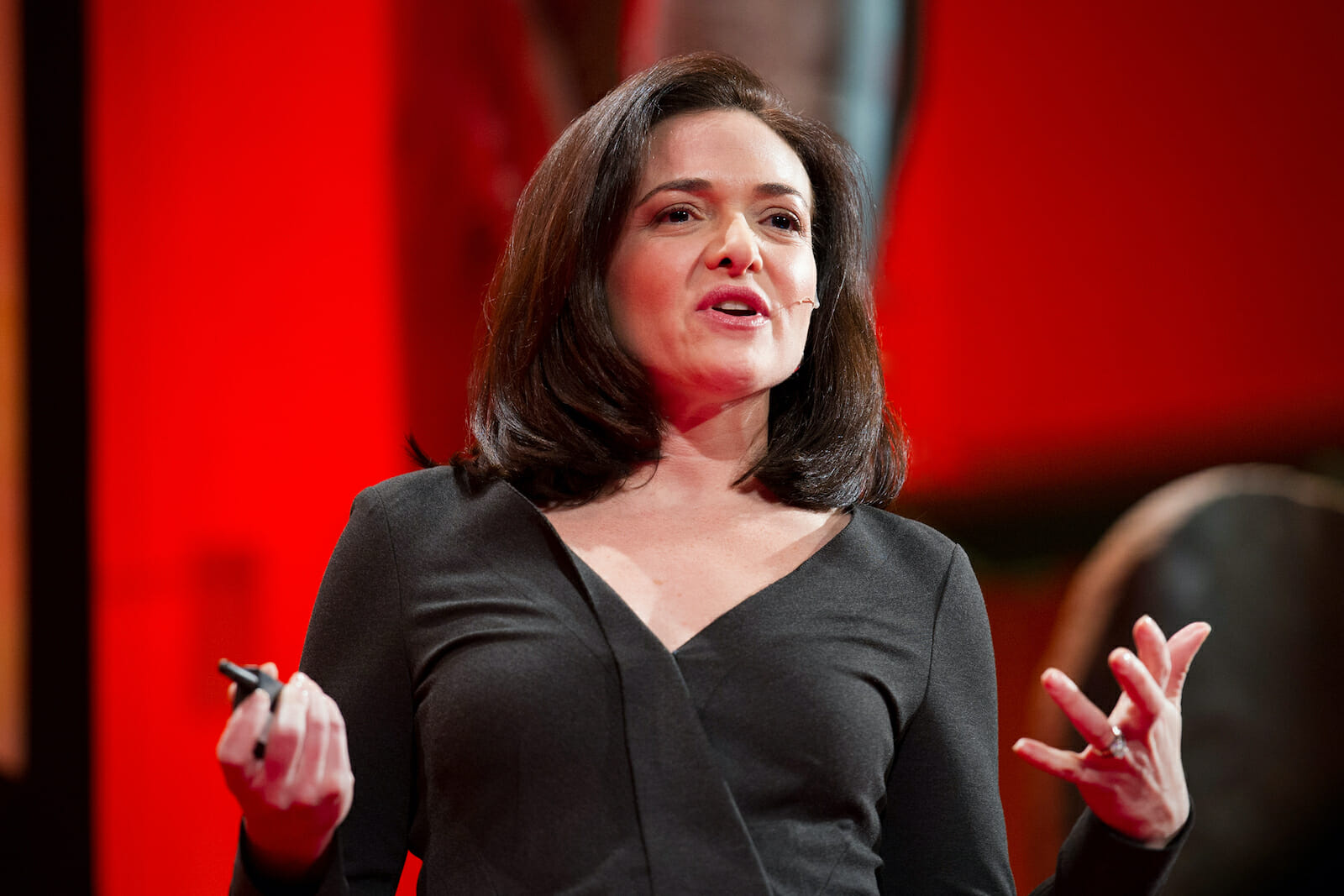
Business
Ensuring ‘Post-Traumatic Growth’ For Women Job-Seekers, Entrepreneurs and Employers
With millions displaced due to the ongoing COVID-19 pandemic, America’s workforce, and American families from all walks of life, have been hit hard.
Many women and men have been laid off or furloughed by their employers and have been forced to seek employment elsewhere, re-entering what is one of the most difficult economic landscapes since the Great Depression. Other households continue to struggle to find daily work-life balance, a dilemma made worse for those who, amidst social distancing measures to avoid infection, have been faced with unprecedented challenges, such as homeschooling their children during their workdays.
One executive may oversee dozens of employees and still has to manage her kids’ education, as a single-parent household. Another is looking at job boards struggling just to make ends meet.
Dr. Diandra J. Prescod, Associate Professor of Counselor Education and Program Coordinator at the University of Connecticut, and Erin Milroy, President of Kuder, Inc., an award-winning career guidance solutions provider, below offer perspectives as to how best to inspire hope in American workers dealing with post-traumatic stress – and how to prepare them for the road ahead.
Erin Milroy: I graduated from college during the 2008 economic recession, and so I was challenged just to find a job at that time. Fortunately, I had a finance and accounting background, and jobs that required my skills were available. My initial challenges then was related to deciding which career path I wanted to take after my first job, and evaluating my level of satisfaction with my initial position, as an auditor.
However, I learned quickly that auditors are often received as a nuisance during site visits. I just couldn’t get past the feeling that nobody intentionally wants to meet the auditor! So, I had to figure out – what do I really want to do, and what will make it meaningful?
Diandra J. Prescod: I also knew I wanted to make an impact and wanted to help others. As a young Black woman who didn’t have her first Black teacher until college, I quickly learned the importance of connecting with and being educated by someone who looked like me. In college, the desire to make an impact and help others continued, but I didn’t have a lot of guidance when it came to answering the question, “What are you going to do with a psychology degree?”
In terms of my own career development, I didn’t even see an advisor in college until the semester before I graduated, and that was only to make sure I was on the right track so I could complete my degree requirements and move on.
When I was pursuing a Ph.D., it was also a difficult time, because the message that I was getting during the first semester of my program from one faculty member was that I couldn’t write, and this was quite disheartening. Fortunately, I was able to connect with my peers and with Black faculty members who started to support and mentor me. I then learned how to improve my writing, and to teach, and to counsel to a degree I’m quite proud of.
These are challenges many Americans face. However, as a part of the Kuder organization, I’m proud to say that we are in the position to provide the kind of guidance that we had once sought for ourselves.
Erin Milroy: And let’s face it – COVID-19 has opened up a lot of disparity. It’s safe to say the pandemic has thrown society a curveball. However, we at Kuder believe the pandemic has also presented an opportunity to persevere.
In the wake of the COVID-19 crisis, Kuder took a fresh look at the company’s strategic vision and asked, “how can we make a difference in this environment; how can we be present and help?”
We held a work session at the outset of the pandemic, and what came out of it was Hope Central – a comprehensive online resource and support system for furloughed, laid-off, or dislocated workers.
Due to the COVID-19 outbreak, we’ve witnessed major trauma. Everyone has felt it and we’re having to navigate through it; the mental health aspect, the anxiety, the stress – Hope Central addresses these things; it’s a tool communities and employers alike can implement as a crisis resource.
Diandra J. Prescod: We’ve also recognized that career decision-making, especially for undergraduates, can be difficult. The COVID-19 crisis has compounded this dilemma.
According to recent research from the Economic Policy Institute, one in ten Americans out of work today may not be able to return to their old positions. It’s here that Kuder’s Hope Central also lends a critical helping hand.
We support the notion of “post-traumatic growth.” After this type of experience, in the wake of the pandemic, there’s an opportunity to not just come back to your normal level of functioning, but to actually grow and function at an even higher level.
Erin Milroy: I’ve noticed that career development doesn’t always get the attention that it needs from the public, even though everyone knows the reason you go to school is to eventually get a job to earn a living and contribute to society.
Organizationally, from our faculty, to our assessments, to how we present data and gather feedback from users – at our core, everything centers on evidence and research; even with regard to how we’re demonstrating success for users as they are navigating their journeys, whether that’s education transitions or workforce transitions.
Our statewide-system clients are using real-time aggregate system assessment and outcomes data to drive decisions with their curriculum and program planning – even at a specific course level. They’re making budgeting and funding types of decisions based on our system data, too.
Diandra J. Prescod: Being a part of the Kuder team, comprised of many faculty members from various universities, we’re presently focusing on different areas of career development – whether it’s career and trauma, or evidence-based career development interventions for undergraduate students or elementary students or for people of color, we’re all engaged in impactful research and dialogue.
We’re also looking at COVID-19 statistics to make sure we’re serving our populations in a meaningful and holistic way. We’re keeping up with what works, what the needs are of students, of emerging adults, of minoritized populations, of people who are close to retirement, of those who are elementary age; it’s how we keep up to date with timely information.
Erin Milroy: Speaking to The Business Woman audience in particular, it’s important to note that a study by sociologist Susan Walzer found that women are still carrying the majority of the workload for responsibilities at home.
When I think about work and what is changing with the workplace, including its virtualization, and how to continue to empower women while that happens, given their time limitations, this is a big area of concern for me, and an area that I think still needs a lot of support.
I believe that fostering a conducive climate for better-supporting women in the workforce is one of the areas that warrants both support and continuing understanding, whether that’s regarding the public or private sector or just internally for organizations; it is critical we understand how we’ll be more flexible, how we’ll enable a more equal environment in the future.
I think we’ve come a long way, but there’s work to be done.
Diandra J. Prescod: I agree. As far as supporting women in the workforce, we still have a long way to go.
Wage discrimination is still a huge issue that we’re seeing – no matter how many other statistics I gather, I always go back to that discrepancy, year after year. Although it’s closing a bit, the gap is still there.
We also know that women are a lot more educated now than if we were having this conversation years and years ago; yet, we’re still being paid less and not being seen as equals.
When we think about the workplace now, we think about it a little differently, because of COVID-19 – single women who might need certain support, those with or without a partner or spouse, with or without children. We’re even thinking about women who are unfortunately in some situations dealing with domestic violence, who now can’t go to work or to the office every day and are at home. We must ask ourselves – how do we support them?
Being intentional about specific services for women during this time is quite important. Yes, we can talk about general tips for healthy work environments, but we shouldn’t be afraid to get specific about having programs for various groups of women; women of color, women who are immigrants, for example.
We need to open our eyes to the number of roles that women play on a day-to-day basis. Women play the roles of businesswoman, caretaker, daughter, mother, partner, nurturer, and best friend, amongst many others! And because we haven’t paid attention to all of those roles, we then don’t always think about them when it comes to work.
You can’t really address issues or make things better when you’re not listening. Even when we’re talking about social justice, there has to be a whole lot of listening that goes on.
We have to stop with the line of thinking, “I’m an expert so I don’t need to learn anymore.” Obviously, we all need to learn more.
We need to listen to women’s needs. More decisions need to be made by women, for women, about the needs of women.
